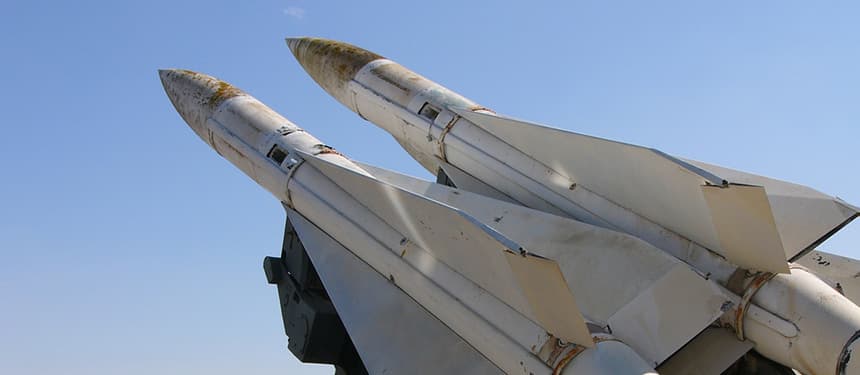What’s happening: Iranian strikes in Israel

Iran initiated 'Operation True Promise' on the night of 13 April. Approximately 300 projectiles, including 170 drones, 30 cruise missiles, and over 120 ballistic missiles, were launched towards Israeli territory. Targets included military infrastructure in the Golan Heights and the Negev desert. Iranian authorities have clarified that civilian and economic assets were not targeted.
The Israeli Defense Force (IDF) reported that 99% of the projectiles were intercepted, resulting in minimal damage. With assistance from Jordanian, US, and UK forces, the Israeli Air Force successfully intercepted all drones and cruise missiles before they reached Israeli territory. Although some ballistic missiles impacted IDF bases in the Negev desert, casualties were limited to one child wounded by falling shrapnel.
Operational impact
Following the attack, around a dozen airlines temporarily suspended flights over Iranian and Israeli airspace. Among them were Singapore Airlines, Qantas, Lufthansa, Austrian Airlines, United Airlines, Air India, Air Algerie, and Kuwait Airways. Most airlines have announced the resumption of flight operations, albeit with some residual disruption and heightened demand for flights across the region.
Regional airspace, including Israeli, Jordanian, Lebanese, and Iraqi, reopened on 14 April after temporary closures. Reports confirm that Iranian airspace is also open. Israel's flag carrier, El Al, has resumed operations, although disruption at Tel Aviv Ben Gurion Airport (TLV) was reported on 14 April, with multiple flights cancelled or suspended.
Assessment of response options
Iran's attack aimed to respond to the bombing of an Iranian diplomatic building in Damascus on 1 April without escalating into direct conflict with Israel. It was crucial for Iran to demonstrate strength to its domestic support base and regional proxy allied groups, such as Hezbollah, without appearing weak.
Israel has three ways to respond: direct airstrikes on Iran, stepping up attacks on Iranian allies, or indirect routes.
Israeli airstrikes, likely targeting Iranian projectile factories and warehouses, nuclear facilities, and critical economic infrastructure, would be the riskiest but most effective operation in terms of reducing Iranian capability and deterring further Iranian attacks.
Targeting Iranian allies in Lebanon, Syria and Gaza could potentially result in less international pushback in the wake of the Iranian attack on 13 April. Additionally, Iran would be unlikely to respond directly if Israel only attacks its proxy groups.
Responding indirectly through intelligence agency-led sabotage, assassination or cyber-attacks would target key Iranian infrastructure without risking direct Iranian retaliation. However, Israeli capacity is likely insufficient to carry out such operations in the immediate term.
Significant Israeli retaliation over the coming 24 hours remains unlikely
Israel didn’t immediately respond to the attack as Israeli Prime Minister Benjamin Netanyahu likely wanted to test US support first, while there were also concerns regarding Israeli capability to intercept the Iranian attack while responding at the same time.
Reports from the Israeli war cabinet indicate that Israel will take at least a further 24 hours before deciding a response. While there is demand for a direct strike on Iran within the Israeli parliament and some members of the war cabinet, all major international and regional powers are urging restraint.
Advice for organisations operating in Israel
- Continue to observe air attack sirens and seek shelter in case of further warnings.
- Register with your relevant embassy in Israel if possible.
- Check travel routes and journey management plans thoroughly before leaving secure accommodation to ensure routes remain open and viable. Confirm flight itineraries with airlines prior to heading to the airport to account for any disruption or delays.
- Ensure the ‘watch country’ function is set to ‘Israel’ on the Healix Travel Oracle app for updates on the latest security developments.




